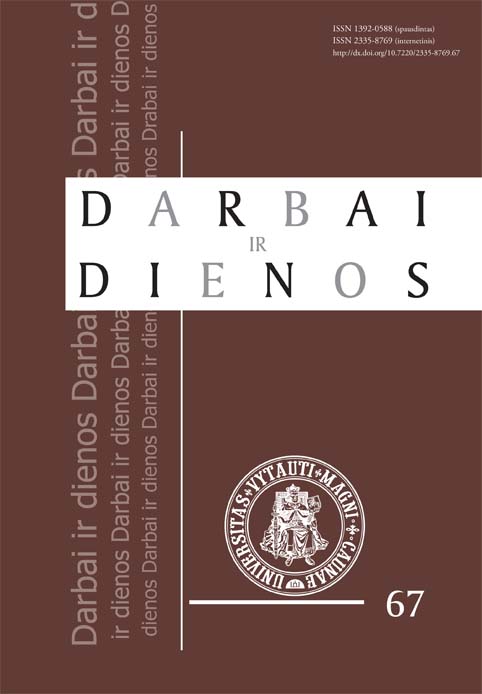Jews and Lithuanians on the Eve of the Holocaust 1939–1940
Jews and Lithuanians on the Eve of the Holocaust 1939–1940
Author(s): Saulius SužiedėlisSubject(s): History, Political history, WW II and following years (1940 - 1949), Fascism, Nazism and WW II, History of the Holocaust, History of Antisemitism
Published by: Vytauto Didžiojo Universitetas
Keywords: Jews; Lithuanian-Jewish relations; Anti-Semitism; Soviet occupation of Lithuania; Lithuanian Communist Party;
Summary/Abstract: The long history of Jewish-Lithuanian relations was influenced by the changing social and economic realities and thus depended largely on the situational context, in which the two communities interacted with each other.1 The relationship that until the middle of the nineteenth century could be characterized by pre-modern social and economic contacts within an agrarian and traditional system had been inherited from the Grand Duchy period. After the middle of the nineteenth century, the emergence of modern and politicized Lithuanian nationalism changed the way in which Lithuanians came to view Jews. Attitudes towards Jews ranged from clerical anti-Judaism and modern anti-Semitism to tolerance within a secular framework. During the interwar period Jewish society was confronted by the necessity of adapting to a radically new reality: a state, in which formerly marginalized Lithuanian speakers quickly formed a majority in the country’s urban centres, exerted political power, became competitors in the economy and professions. Despite the Smetona government’s suppression of anti-Semitic outbreaks and the relatively low level of violence against Jews, anti-Semitism increased among the educated elite during the late 1930s. The domestic and international crises of 1939‒1940 transformed Lithuanian-Jewish relations radically. The first Soviet occupation of Lithuania in June 1940 sharply escalated the violent rhetoric against Jews: they were increasingly attacked as traitors to the country and the main source of Bolshevism. The myth of “Jewish power” became a wide-spread meme among many Lithuanians and gained further credibility as resistance to Soviet power intensified. The Lithuanian Activist Front propagated the ideas of Jewish treason and Communist collaboration in its propaganda. However, it is true that there were brief periods when Jews represented a considerable part of the LCP (Lithuanian Communist Party) compared to the percentage of Jews within Lithuania. A closer study of the ethnic breakdown of the LCP reveals a complex situation, influenced by the constantly changing reality. The real levers of power were not at the disposal of insufficiently educated local Communists, but in the hands of Stalinist cadres, which were loyal to the Kremlin. Before June 1941, Soviet Lithuania was mainly controlled by Russophone newcomers from the USSR. The situational context of the foreign invasion, which evolved in diametrically opposite geopolitical directions, a number of narratives based on the myths of anti-Semitic disloyalty, and political extremism created a toxic atmosphere on the eve of the Holocaust.
Journal: Darbai ir dienos
- Issue Year: 2017
- Issue No: 67
- Page Range: 107-122
- Page Count: 16
- Language: English

